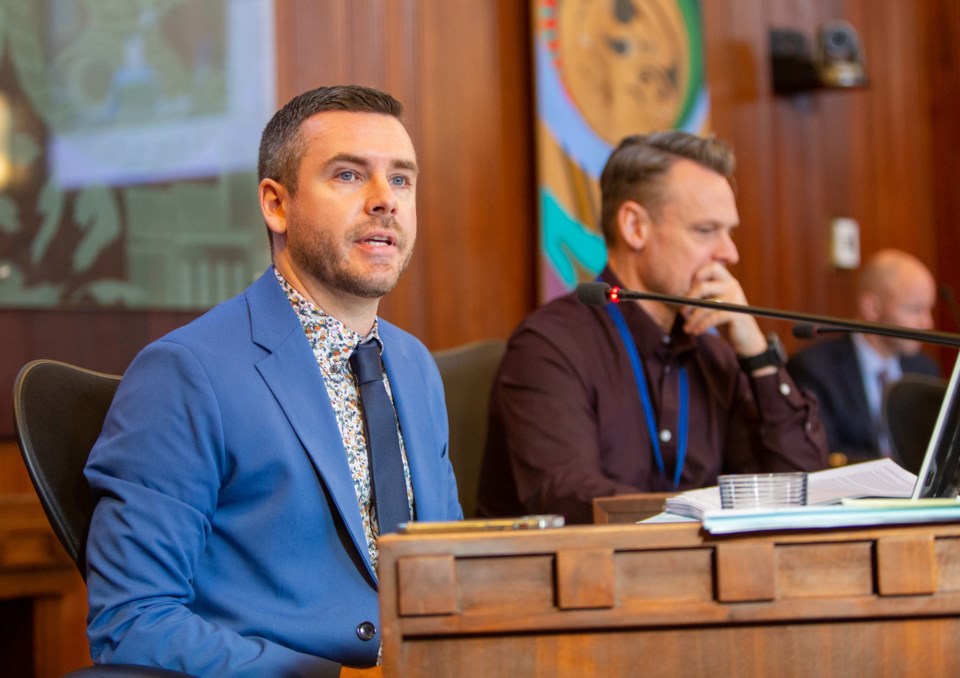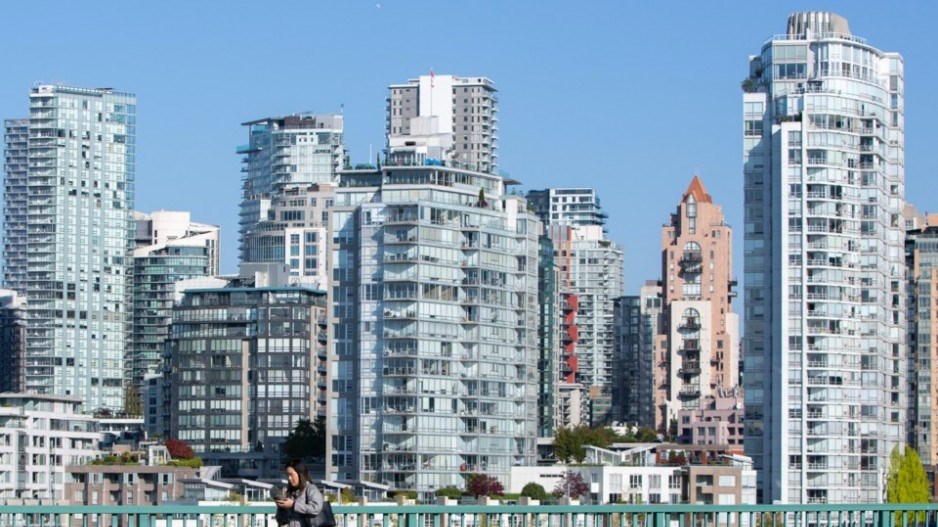Vancouver city council voted 7-3 Wednesday to return $3.8 million to developers that has already been paid or was to be collected under the empty homes tax and related to 60 new unsold condominium units.
The move was initiated by ABC Vancouver Coun. Mike Klassen, who said charging developers a tax on unsold inventory is “counterintuitive to our quest for more housing attainability” in the city.
“We know that any additional costs associated by development are passed on to renters and homebuyers, not to the developer,” said Klassen, who got the full support of his six ABC Vancouver colleagues present at the meeting.
The $3.8 million was the amount of tax levied against a small number of developers connected to 60 unsold condominium units that were vacant in 2022. The city’s communications department said in an email Wednesday that developers already paid $2.4 million of the $3.8 million.
OneCity Coun. Christine Boyle, who along with Green councillors Adriane Carr and Pete Fry opposed Klassen’s amendment to the empty homes tax (EHT), said she was stunned by ABC Vancouver’s move.
“I'm almost speechless, which is uncommon for me,” Boyle said. “It's like a reverse Robin Hood tax, and I am strongly against it.”
Staff had recommended an exemption be applied for developers related to new vacant inventory — but for 2023 and not retroactively to 2022, as ABC Vancouver decided as part of a series of amendments to the empty homes tax.
Boyle pointed out the purpose of the tax, which was implemented in 2017, was to force homeowners during a housing crisis to return their vacant properties to the market and either rent them or sell them.
Homeowners who don’t occupy their properties for more than six months of the year are required to pay the empty homes tax. As of November 2022, the city collected a net sum of $115 million, which can only be used for affordable housing initiatives.
Boyle argued the $3.8 million would have boosted the fund for social housing.
“That is a lot of money that is badly needed in addressing funding gaps and deepening affordability of non-profit housing,” she said. “We know that clearly, and so I think that's a big move in the wrong direction.”
Fry: “I am disappointed with the retroactive application for reimbursement to developers over unsold property and keeping that exemption in perpetuity rather than the proposed, ‘Let's see how it works for a year and give a little bit of latitude for economic conditions that we might be experiencing.’”

'Get barriers out of the way'
ABC Coun. Peter Meiszner argued the city is requiring developers to build more two and three-bedroom units for families, adding that they are slower to sell and can be quite expensive; staff did not say how many of the 60 units in question were two and three bedrooms.
“We desperately need those units in Vancouver and we don't need to scare away builders, developers from building in Vancouver, and I think there’s a danger of that,” Meiszner said.
“This council on the ABC side is committed to doing everything we can to ensuring that we build more homes in Vancouver. So we need to get barriers out of the way and not add more barriers to building homes in Vancouver.”
Under the city's current policy, if a newly constructed unit has not yet been sold to an end-user, the unit may be exempt for six to 18 months depending on the date the occupancy permit was received, or when it is sold.
Properties that remain vacant beyond this period are subject to the empty homes tax.
“Previous councils’ direction has been to include these units in line with the goal that vacant properties should be occupied or taxed,” said a staff report that went before council Wednesday.
“Staff have not previously recommended an exemption for vacant new inventory because of this direction, and due to the relatively low incidence of units remaining unsold in Vancouver’s typically strong housing market.”
'Greater challenges'
At the same time, the Urban Development Institute (UDI) has told city staff and council that recent increases in interest rates have slowed property sales, creating a higher likelihood of developers having unsold units at completion “and greater challenges selling even with incentive practices,” the report said.
“They also note that it is typically not feasible for a developer to rent out vacant new inventory before it is sold to an end-user, because units can no longer be marketed as a new property and the developer would be subject to GST,” the report said.
“UDI has indicated that continued application of the EHT to unsold units in combination with market uncertainty poses a significant financial risk to development that could impact the delivery of new housing supply, and have advocated for the exemption of this category and to be implemented retroactively for 2022.”
While the most controversial part of Wednesday’s debate was tied to the $3.8-million tax break for developers, Boyle, Fry and Carr also voted against staff’s recommendation to return the empty homes tax rate from five per cent to three per cent.
In April 2022, the previous council approved a five per cent rate for 2023. However, the declaration period doesn’t begin until the fall, meaning no money has been collected under the five per cent rate.
18,000 audits set for 2023
ABC Vancouver Coun. Lenny Zhou referred to the staff report and a separate report from EY Consulting Services that concluded keeping the rate at five per cent could increase taxpayer complaints, legal disputes and false declarations.
“I feel that I don't have enough information to help me justify the decision to increase to five per cent from three per cent,” Zhou said. “I would like to keep the three per cent for another year. Once we collect more data and do a thorough evaluation for one more year, it will be really helpful for us to facilitate the decision in 2024.”
Council also approved a series of amendments to the empty homes tax related to renovation, redevelopment and strata rental restrictions. Uninhabitable properties such as those damaged in a flood or fire, and secondary homes used for people to stay during medical treatment were also included in the exemptions.
Council heard staff has increased the number of audits from 6,000 in the first years of the tax’s implementation to 18,000 this year. Roughly 1,400 homes are vacant in the city, according to staff, who will now examine the feasibility of a graduated tax scheme that penalizes repeat offenders.




